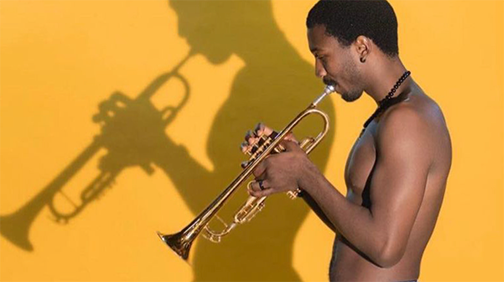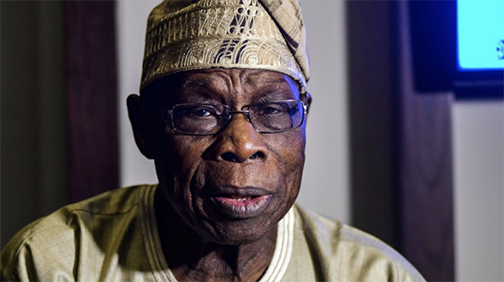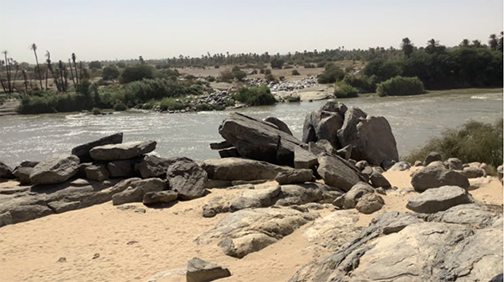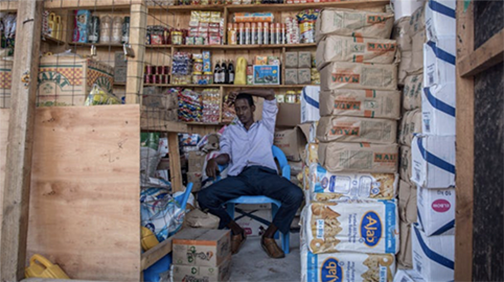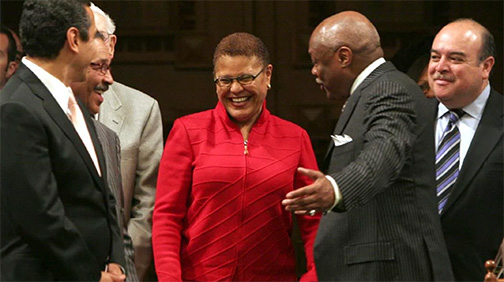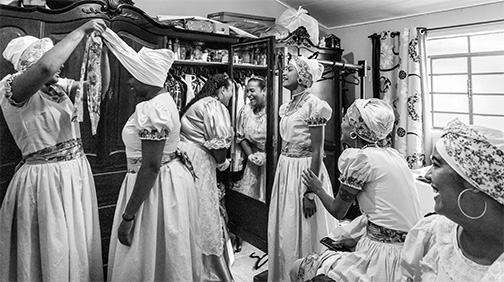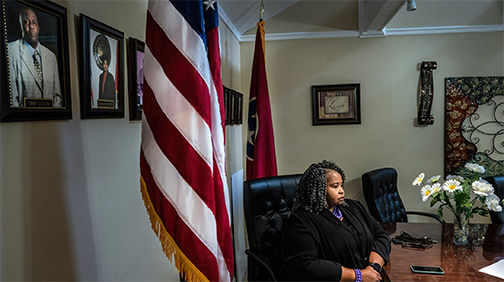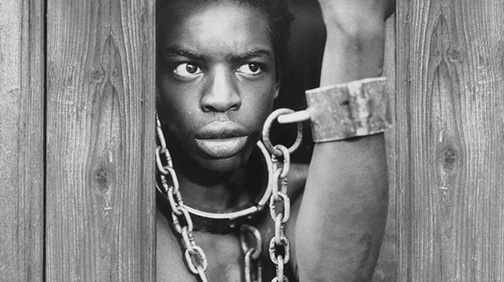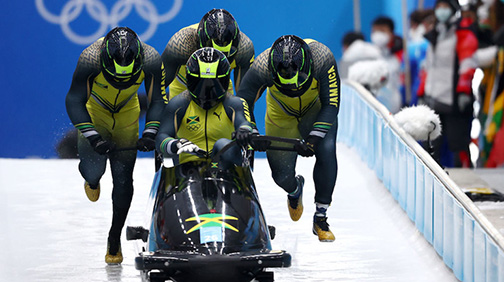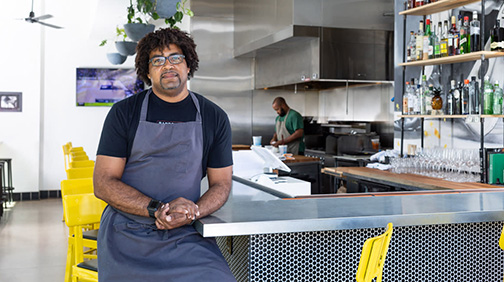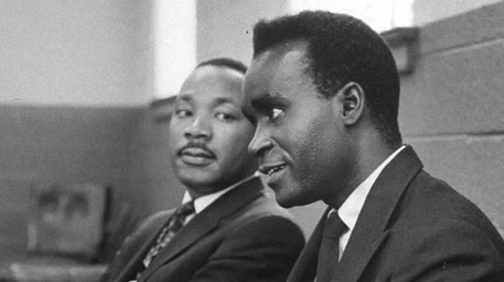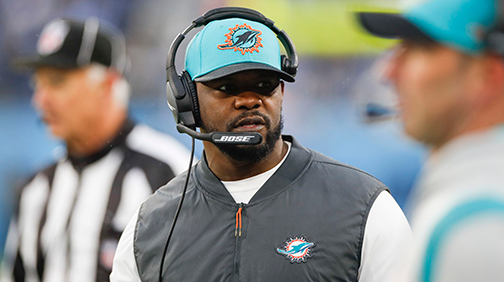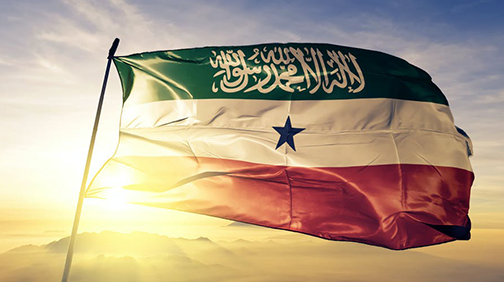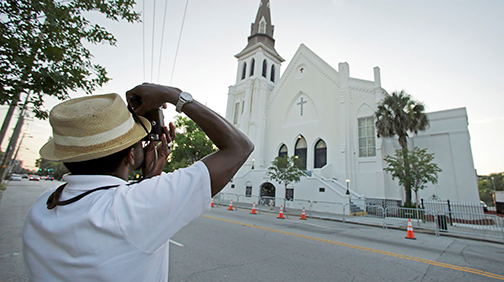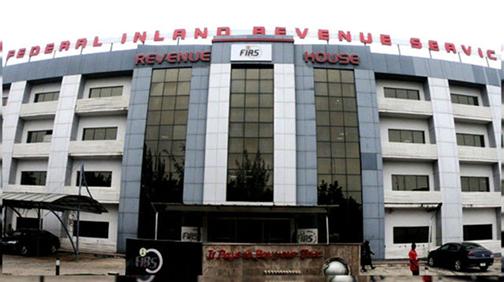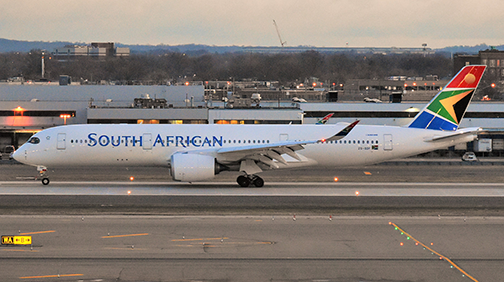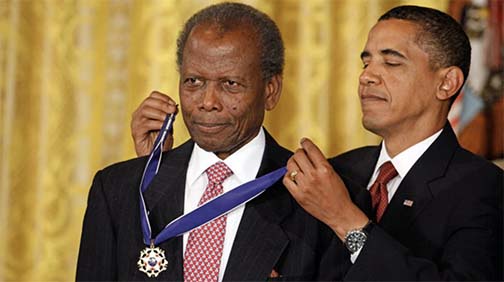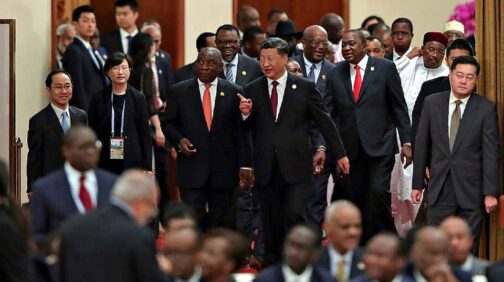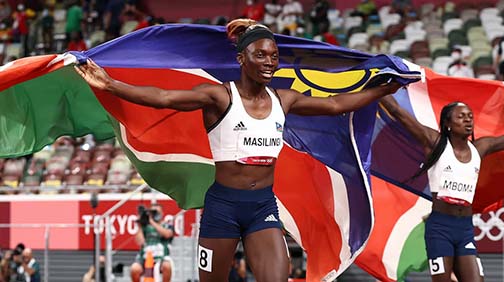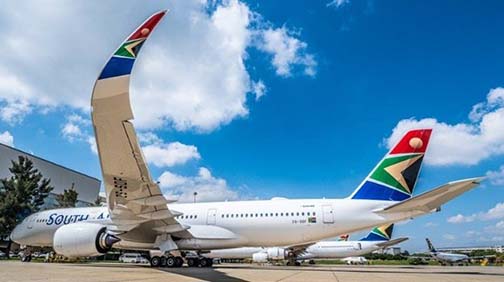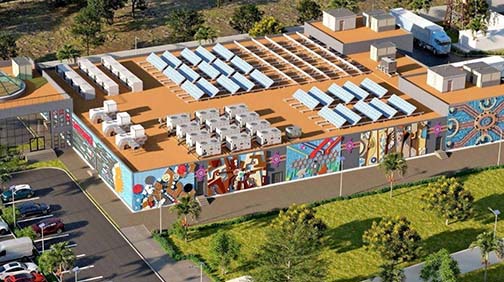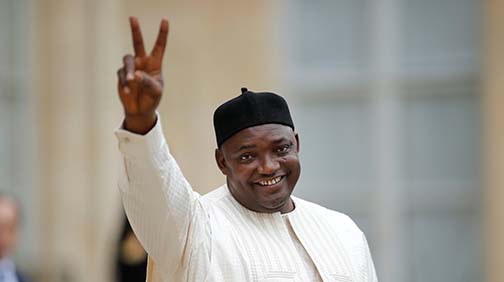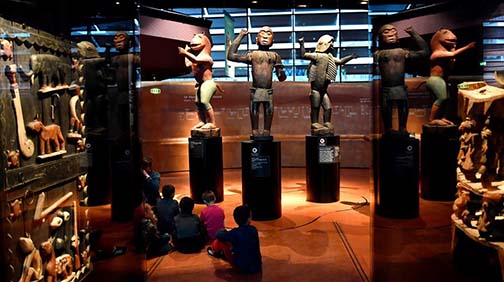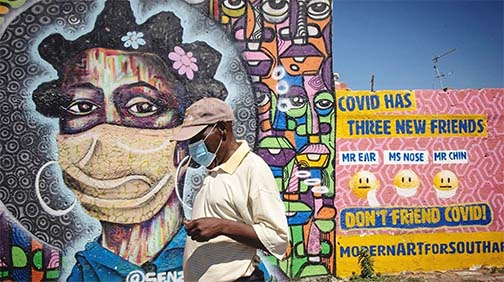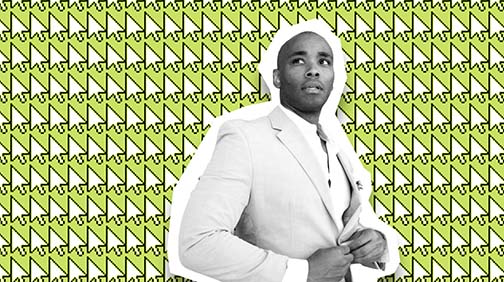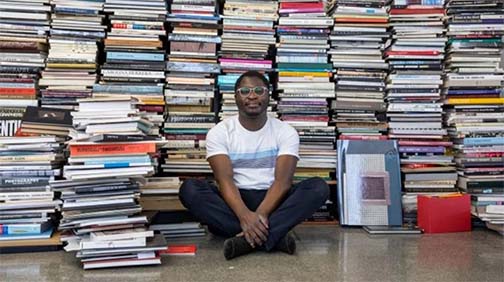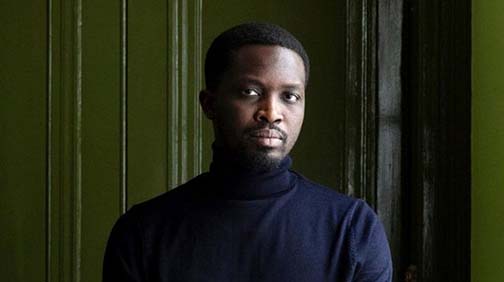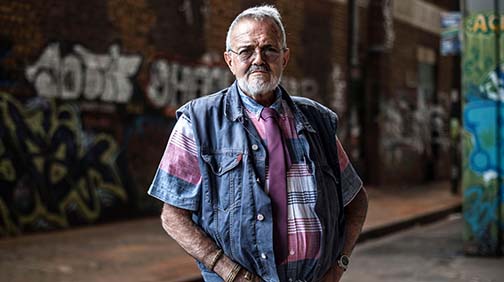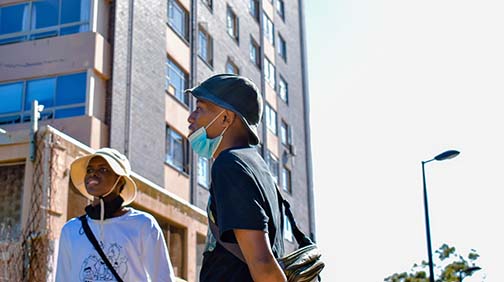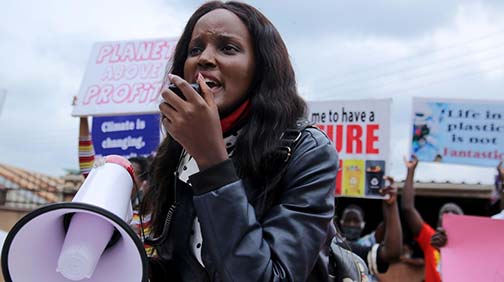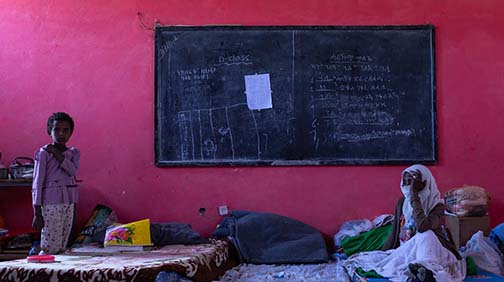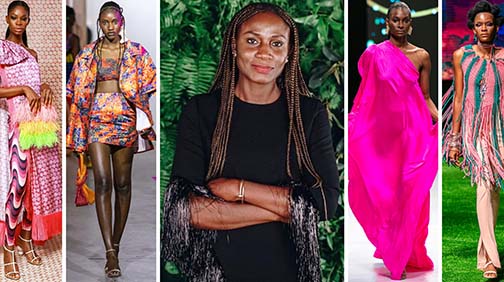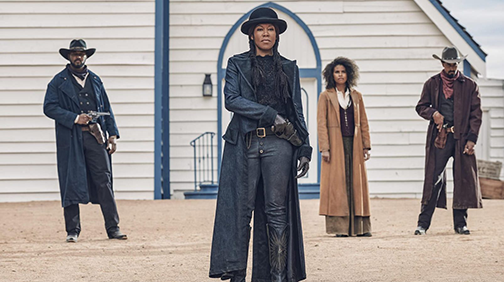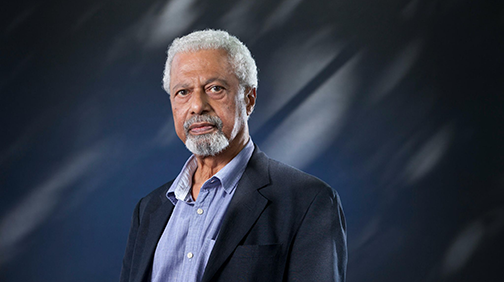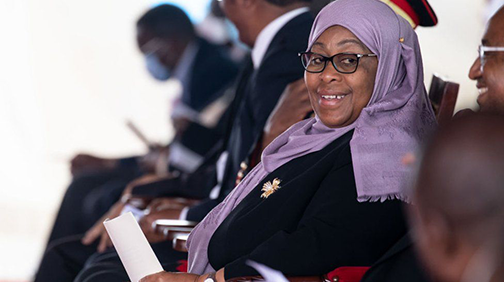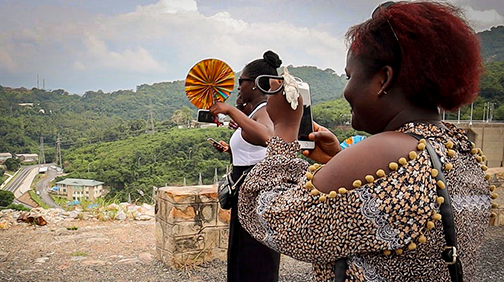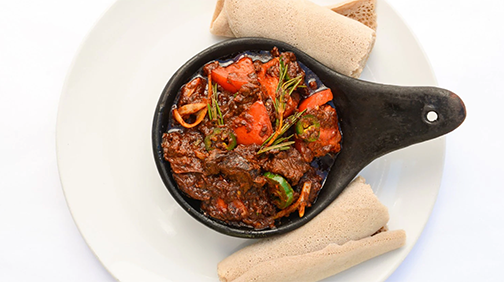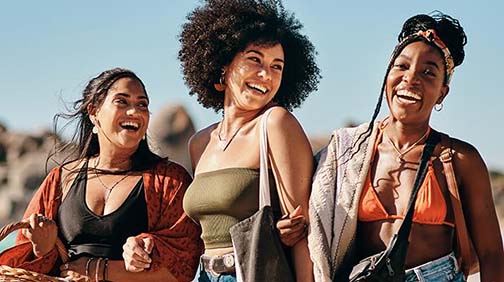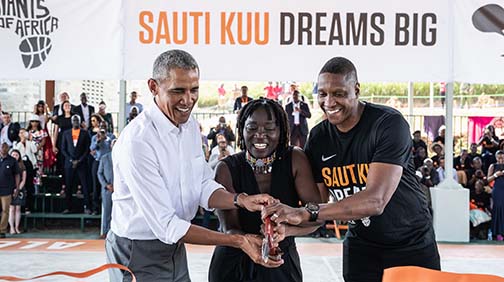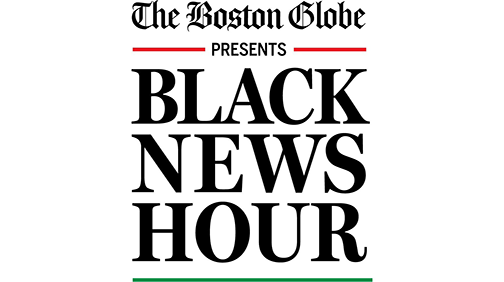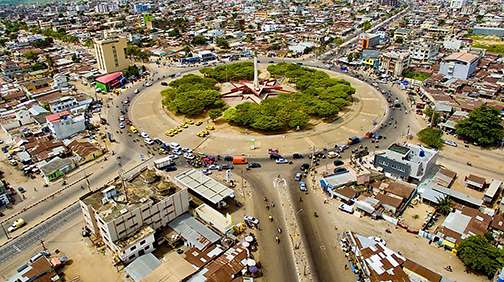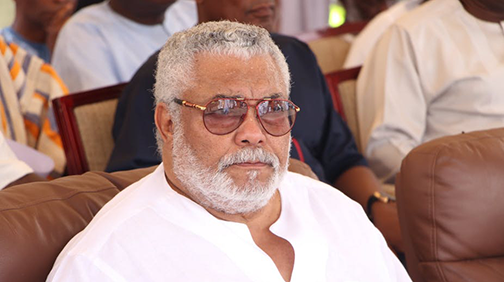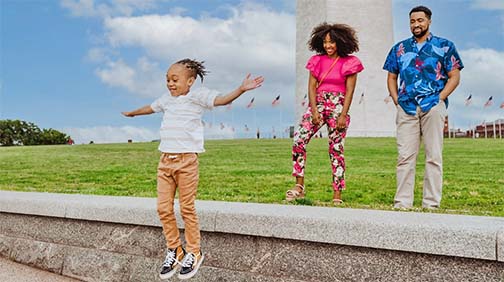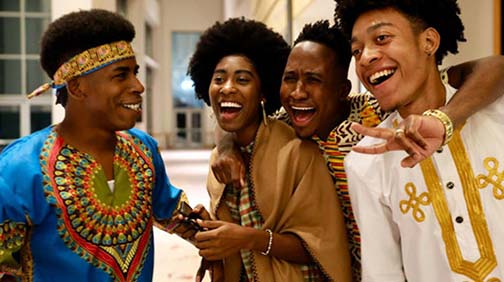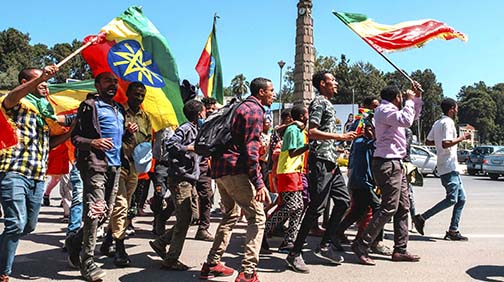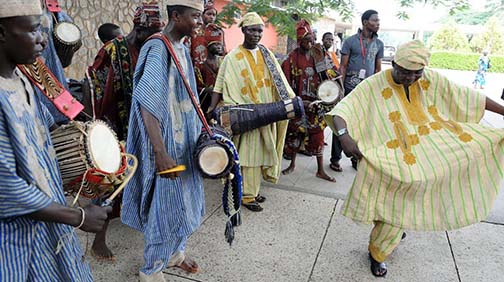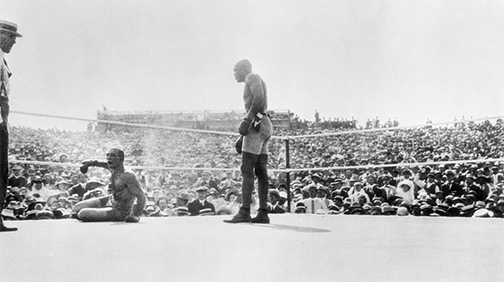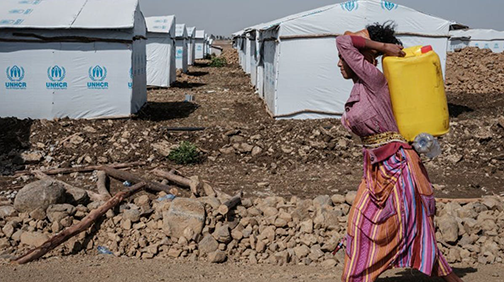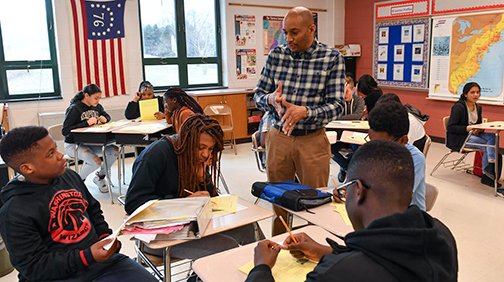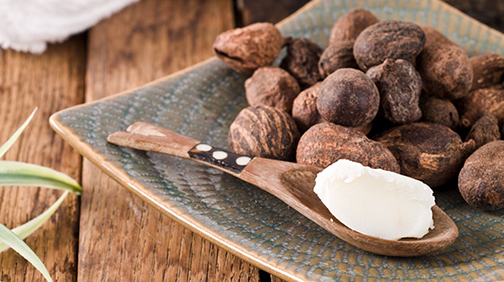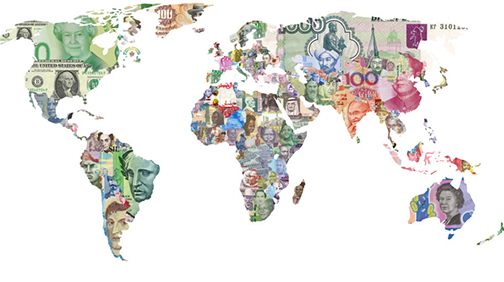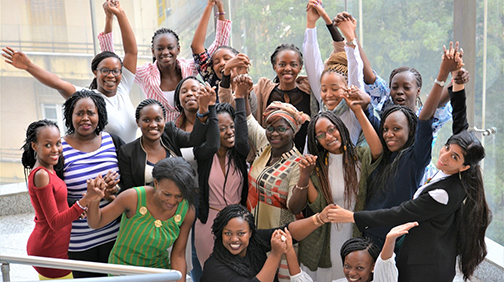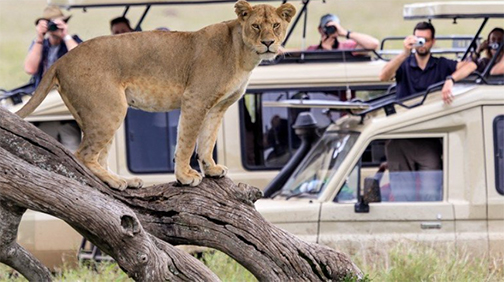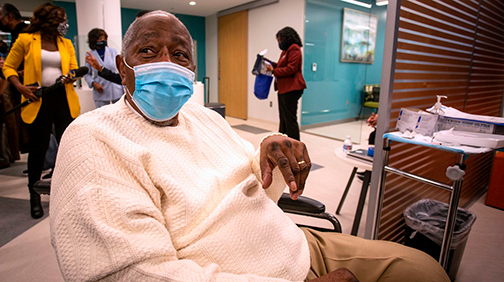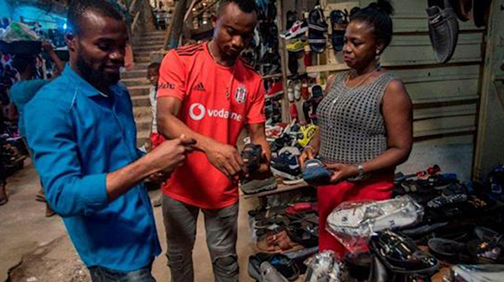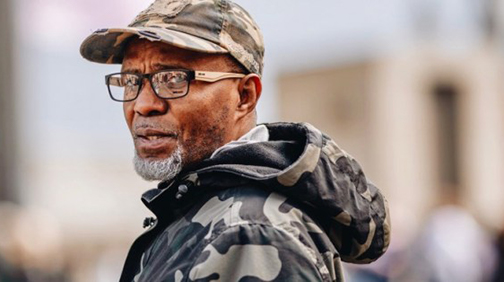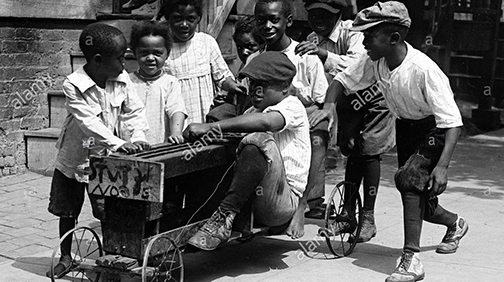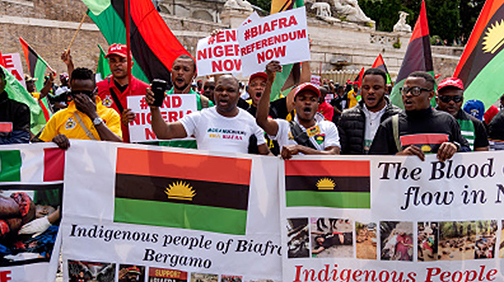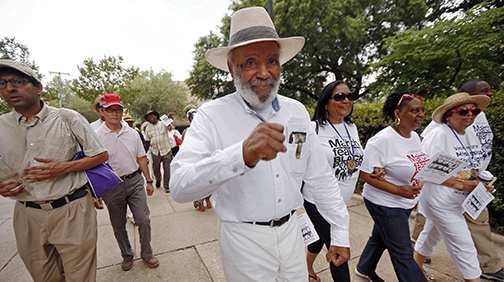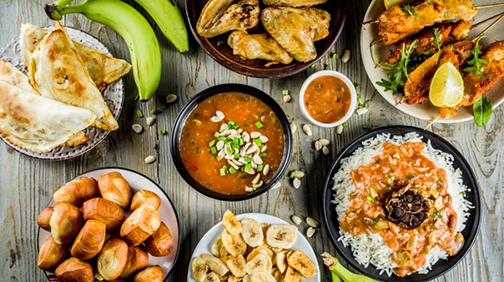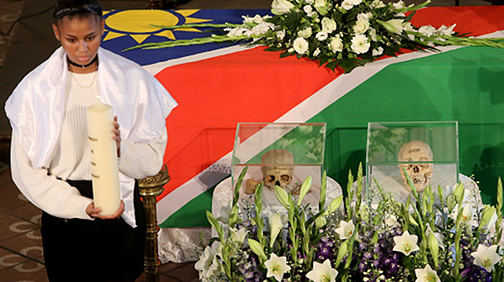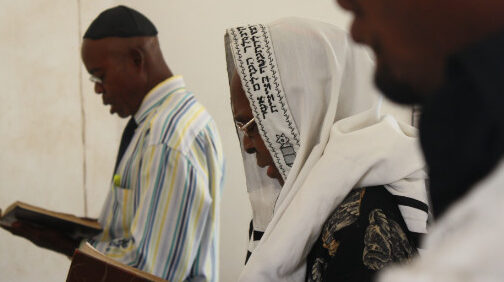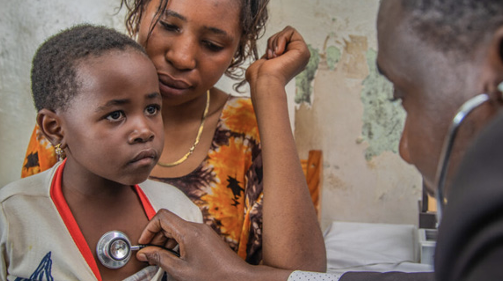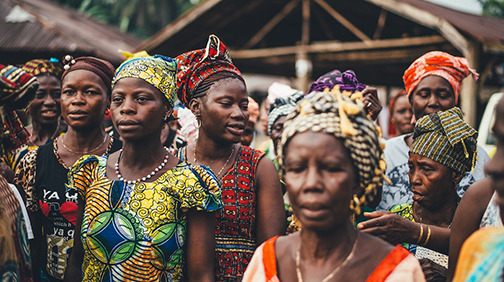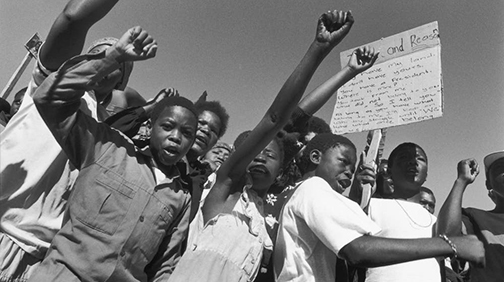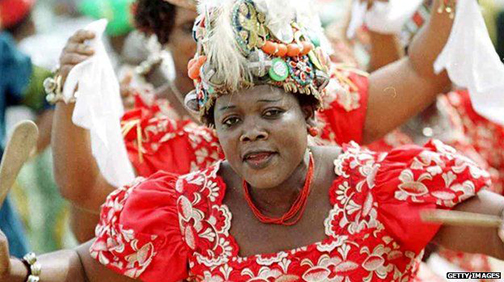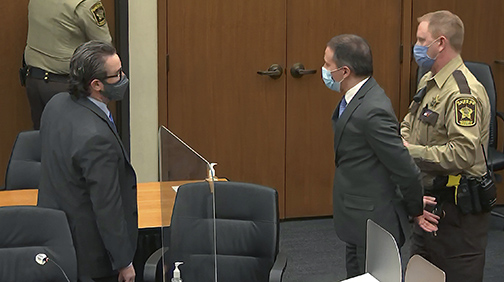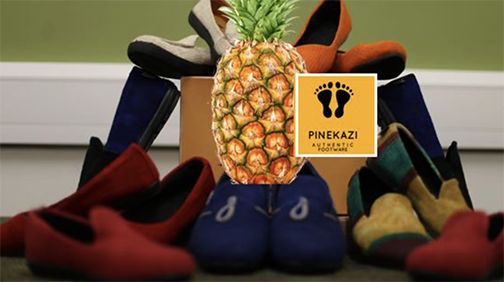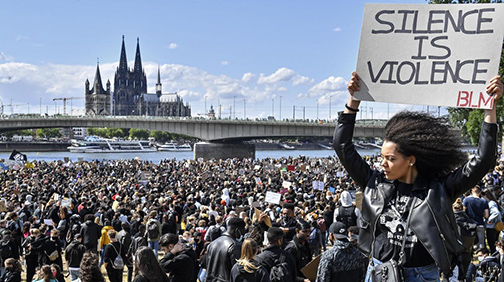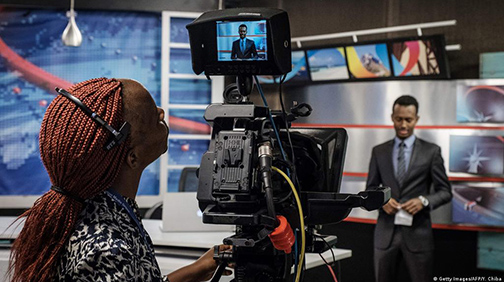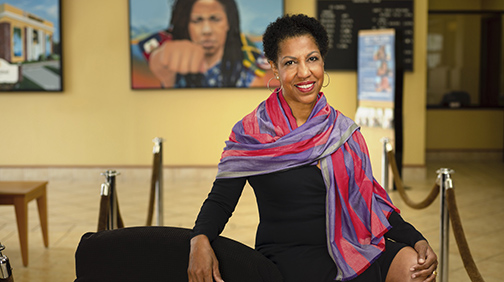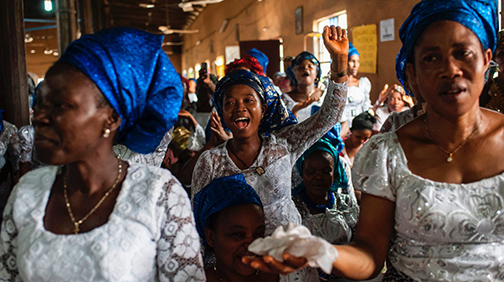RECENT POSTS
There are a record number of African nominees for the 2022 Grammy Awards and they are almost all from West Africa – Angelique Kidjo (Benin), Rocky Duwani (Ghana), Femi Kuti, Made Kuti, Wizkid, Burna Boy and Tems (Nigeria).
Most of these artists are also proponents of Afro-beat (Femi and Made Kuti, following the musical and political form defined by Fela Kuti) or new breed Afro-beat (Wizkid, Burna Boy and Tems). Kidjo, too, has admitted to being influenced by Fela.
As with Afro-beat, Afrobeats is music characterized by harmonic and melodic grooves, call and response choruses and intricately layered syncopation (disrupted rhythms). But Afro-beat is more commercial, radio-friendly and often politically vacuous – easily digestible by mass audiences.
Olusegun Obasanjo, Nigeria’s former President, turned 85 on March 5, 2022. His influence across the African continent ranks next to that of Nelson Mandela. What are truly his legacies?
Obasanjo was Nigeria’s military head of state between 1976 and 1979 and two-time democratically elected president, from 1999 to 2007.
“OBJ,” as he is widely called, is probably the most globally known and celebrated Nigerian leader. One probable reason is his political credentials as military and civilian head of state. He also led Africa’s biggest country longer than any other person.
Circular mounds of rocks dot the desert landscape at the archaeological site of Tombos in northern Sudan. They reveal tumuli – the underground burial tombs used as far back as 2500 B.C. by ancient inhabitants of this Kush or Nubia region. As a bio archaeologist who excavates and analyzes human skeletal remains along with their related grave goods, I’ve been working at Tombos for more than 20 years.
Discussions about ancient history in Africa are dominated by the rise of Egypt. But there were several societies that rose to great power in the Nile River Valley since the middle of the third millennium B.C., including this often-overshadowed neighbor to Egypt’s south. Even though ancient Kush rivaled and, at times, conquered Egypt, there’s been a relative lack of modern attention paid to this civilization.
The global appreciation of West Africa’s Afro-beat music has grown significantly in the last decade. Afro-beat stars are touring the world, racking up record sales, winning awards and collaborating with big-name international artists. Recently, Nigeria’s other musical giant, Burna Boy sold out Madison Square Garden in New York!
In fact, seven of the nine African artists nominated for a 2022 Grammy Award – one of the world’s most sought after music awards – are West African. Most of these make music driven by Afro-beat sounds.
Afro-beats is a broad, generic term for African contemporary popular music with rhythmic and harmonic influences of West Africa’s highlife and…
Humanitarian organizations – such as the World Food Programme (WFP) – are increasingly using cash transfers as a way of assisting vulnerable people. Conventionally, humanitarian organizations procure food or other goods and distribute it directly to recipients. But cash transfers allow people to choose and purchase what they need for themselves.
They are widely praised for enhancing autonomy, reducing costs, and boosting local markets. And this has encouraged their use. For instance, in 2019, the WFP distributed US$2.1 billion transfers to 27.9 million people.
A thorough-bred politician, Karen literally missed by whiskers the opportunity to become America’s second citizen last winter and consequently lost out the exalted position to another Black woman, Kamala Harris.
According to the March edition of the prestigious Los Angeles Magazine that featured Ms. Bass on its cover, she has “spent her life defying expectations”. A native Angeleno, Karen grew up in the Venice-Fairfax district in the city she now aspires to lead.
Afro-Brazilians find strength in the nearly 6,000 communities established by ancestors who escaped slavery.
Beginning as early as 1530 and continuing for the next 350-plus years, ships brought more enslaved Africans to Brazil—some 4.8 million—than to any other nation in the Americas. By 1888, when slavery in Brazil was formally abolished, many captives had escaped to remote areas and founded their own communities. These came to be known as quilombos. But in Brazil today, the word has come to mean much more.
In November 1960, six-year-old Ruby Bridges became one of the first Black children to integrate an all-white elementary school in the South. The iconic civil rights moment was immortalized by Norman Rockwell in his painting The Problem We All Live With. Erik Thor-Sandberg’s mural at Eaton DC offers a different perspective, that of a defiant Bridges slaying the monsterous Jabberwock from Lewis Carroll’s Through the Looking-Glass.
The mural might not completely epitomize the philosophy of Eaton, but it comes damn close.
The 2022 laureate of architecture’s highest honor, the Pritzker Architecture Prize is Diébédo Francis Kéré, Burkina Faso-born architect, educator, social activist, receiver of the 2004 Aga Khan Award for Architecture. Recognized for “empowering and transforming communities through the process of architecture,” Kéré, the first Black architect to ever obtain this award.
“Through buildings that demonstrate beauty, modesty, boldness, and invention, and by the integrity of his architecture and geste, Kéré gracefully upholds the mission of this Prize,” explains the official statement of the Pritzker Architecture Prize.
The Tennessee Comptroller issued an unusual appeal last week to residents of this small, majority Black town, which occupies fewer than two square miles in rural west Tennessee.
“In my opinion, it’s time for Mason to relinquish its charter,” Comptroller Jason Mumpower wrote in a letter mailed to each one of Mason’s 1,337 property owners.
Mumpower urged local residents to “encourage your local officials to do what’s necessary to allow Mason to thrive. There is no time to waste.”
January 23, 1977 sees the premiere of Roots, a groundbreaking television program. The eight-episode miniseries, which was broadcast over eight consecutive nights, follows a family from its origins in West Africa through generations of slavery and the end of the Civil War. Roots was one of the most-watched television events in American history and a major moment in mainstream American culture’s reckoning with the legacy of slavery.
The miniseries was based on Alex Haley’s novel Roots: The Saga of an American Family, which was based on research he had conducted into his own family history. The story succeeded in dramatizing and personalizing the brutal, true story of the Atlantic slave trade and slavery in America.
It has been 24 years since the four-man Jamaican bobsled team has made it to the Olympic games.
The team’s first foray into the sport was in 1988 and that journey inspired the popular movie, “Cool Runnings.”
“This won’t be our last Olympics, and there won’t be a next 24 years span for us to qualify again,” Nimroy Turgott, the team’s bobsled brakeman told the PBS NewsHour.
Two decades since the Jamaican four-man sled took the Olympic stage, Turgott and his team are determined to change the pattern.
U.S. culinary history rarely acknowledges the contributions of Black chefs such as James Hemings, the very first American cook to train in France in the late 18th century. Hemings, who was enslaved by Thomas Jefferson, joined the founding father when he was posted to Paris. There, Hemings trained with a master pastry chef before returning stateside to acquaint diners with dishes that would eventually become some of America’s greatest hits, such as French fries, crème brûlée, and even ice cream.
This February, like many chefs and restaurant owners all over the country, Vyoone’s will honor Black History Month by celebrating the achievements of overlooked Black chefs and hosting a series of purpose-driven events, aimed at uplifting independent restaurants that were pummeled by the coronavirus pandemic.
During an official visit to Washington DC in 1962, Cameroon’s founding President Ahmadou Ahidjo informed President John F. Kennedy of his displeasure over anti-black racism in the US. Ahidjo met and praised the leadership of the National Association for the Advancement of Colored People (NAACP), the oldest African American civil rights organization, for its willingness to unite with Africa “in a world-wide movement to fight against the evils of racial discrimination, injustice, racial prejudices, and hatred”.
He later wrote that:
Each time a Black man [and woman] is humiliated anywhere in the world, all Black people the world over are hurt.
A couple of weeks after the close of the National Football League’s regular season, there is just one Black head coach and one Latino head coach left in the League – Mike Tomlin of the Pittsburgh Steelers, and Ron Rivera of the Washington Football Team, respectively. This follows the firing of Brian Flores by the Miami Dolphins and David Culley by the Houston Texans.
In other words, in a league in which most of the players are Black, most of the NFL head coaches are white.
I have studied diversity and inclusion in sport for more than two decades, including the ways in which race and gender intersect to affect leadership opportunities for women and men.
While the rest of the Horn of Africa region is making waves on the battlefield, the tiny, self-declared republic of Somaliland has been having its presence felt where representative democracy and open debate lurk.
In the halls of the UK Parliament, where, on the 18th of January, around two dozen British MPs convened to discuss the recognition of Somaliland’s independence.
The surprisingly large turnout and display of cross-party consensus (a rarity) gave the proceedings an air of hope, the slight rumblings of a sea change. This was despite the fact that the government representatives concluded by insisting on stubbornly maintaining the status quo.
Lilly Endowment Inc., which supports religious, educational and charitable causes, contributed the money to the African American Cultural Heritage Action Fund as seed funding for the Preserving Black Churches Project, according to the National Trust for Historic Preservation, which launched the fund. The announcement about the donation from the Lilly Endowment was timed to coincide with the Martin Luther King Jr. national holiday January 17.
Rather than simply replacing broken windows or straightening rafters, the project will provide assistance with things including asset management and helping historic churches tell their own stories, said Brent Leggs, executive director of the fund.
Nigeria’s tax receipts in 2021 rose by 29.4% to 6.41 trillion naira ($15.5 billion), the head of Federal Inland Revenue Service (FIRS), Muhammad Nami, said on Thursday.
Nigeria’s government has repeatedly said it wants to boost non-oil revenues since oil sales make up 90% of foreign exchange receipts. But raising more money from taxes has proved difficult in a country where so many small business are not registered.
It plans to prioritise tax collection from its digital economy in 2022 and focus on non-resident firms with significant economic presence that generate turnover in the country.
South African industry daily Tourism Update reported a SAA – South African Airways issued a trade release with the news it is starting Durban flights.
The airline said three flights a day between Johannesburg and Durban would commence from Friday, March 4.
SAA Interim CEO, Thomas Kgokolo said the route was one of the busiest in South Africa and the national carrier had been guided by data in finding the right time to make the decision.
In the summer of 1967, Martin Luther King Jr. introduced the keynote speaker for the 10th-anniversary convention banquet of the Southern Christian Leadership Conference. Their guest, he said, was his “soul brother.”
“He has carved for himself an imperishable niche in the annals of our nation’s history,” King told the audience of 2,000 delegates. “I consider him a friend. I consider him a great friend of humanity.” Legendary actor Sidney Poitier, Hollywood’s first Black star, is seen here in this 1980
That man was Sidney Poitier.
The 82 coups Africa experienced between 1960 and 2000 were devastating for the continent— contributing to the instability, corruption, human rights abuses, impunity, and poverty that characterized many African countries during that era. Coups, moreover, are contagious. A successful coup significantly increases the probability of subsequent coups—in that country as well as its neighbors.
The recent spate of coups in Africa, therefore, is bad news. In the past two years there have been coups in Mali (twice), Chad, Guinea, Sudan, Tunisia, and, arguably, Algeria and Burundi—many of which were navigating democratic transitions.
Geopolitical competition between the United States and China is taking central stage in global affairs. Growing tensions and rivalry between the two are worsening in South East Asia, the Indo-Pacific, the Gulf and Latin America.
US President Biden has identified countering China as one of the main strategic priorities of his foreign policy. This rivalry is also playing out in Africa.
Former US secretaries of state Mike Pompeo and Hillary Clinton have often warned African leaders of the pitfalls of engaging with Russia and China. US officials are also dissuading African governments from relying on Chinese telecommunications leader Huawei for security reasons.
Namibian athletes Christine Mboma and Beatrice Masilingi began to make headlines in 2021 for their exceptional 400-meter sprint times. In July, it was confirmed that the 18-year-old athletes had been barred from the 400m event at the Tokyo Olympics because of too-high natural testosterone levels according to World Athletics’ track and field rules. (The rules do not apply to the 200-meter sprint and they both qualified for this, with Mboma finishing second.) This ongoing ‘sex testing’ controversy also dashed South African star Caster Semenya’s hopes of defending her 800-meter Olympic title. Dr Nana Adom-Aboagye from the Centre for Sport Leadership at Maties Sport (Stellenbosch University) research African women and gender equity in sport.
The newly released report does indicate an astonishingly shameful past for SAA, SAX and SAA Technical, including the well-documented rule of fear of Dudu Myeni, the former Chairperson of SAA’s board, allegedly the premier agent of the jaw-droppingly massive corruption in every corner of SAA.
A statement by SAA says: “The Board has fully supported the Commission during its work and is currently reviewing the report systematically.
“Guided by appropriate legal counsel, the Board will cooperate with, and support law enforcement agencies in their pursuit of prosecutions and, where necessary, will institute internal investigations and disciplinary processes with the aim of cleaning the company of all vestiges of its shameful past as exposed in the Commission Report.
The Economist reports that most of Africa’s data are currently stored outside of Africa, zipping down undersea cables that often make landfall either in the French city of Marseille for Europe and Middle East or one of the Canary Islands for the Americas. These centers not only service communications, but are depositories of the African countries’ government records, from individual driver’s license and birth certificates to their international dealings.
Via Marseille a message from the continent’s southern tip it can take 180 milliseconds for it to reach Europe and back—long enough to frustrate people trying to trade shares or play games.
The Gambia’s President Adama Barrow, of the National People’s Party, comfortably won re-election on 4 December with about 53% of the vote.
The runner-up, Ousainou Darboe of the United Democratic Party, won about 28% of the vote. In third place was Mama Kandeh of the Gambia Democratic Congress with about 12%.
Three other candidates — Halifa Sallah of the People’s Democratic Organization for Independence and Socialism, Abdoulie Jammeh of the National Unity Party, and Essa Faal (independent) – each got under 5% of the national vote.
In a festive ceremonial worthy of those who accompany the greatest political, cultural and sporting events, France has returned to this African country 26 works of art from the royal treasures of Abomey ,looted in the ninetieth century by the French colonial troops of General Dodds during the sacking of the Palace of Abomey in 1892.
Suffice to say that we are touching here on a “sensitive cord” of national pride, and it is not surprising that this return has been in the conversations of Beninese for several weeks.
Reading at home is important. Evidence of the effects of reading and a general culture of reading on adolescents in over 30 countries has shown that reading is good for personal development, intellectual growth, literacy and even numeracy.
A culture of reading is more likely to open doors to grow in society. Research from 2019 showed that, the mere presence of 80 books or more at home is likely to predict better social growth and development for a young child. This is because having books at home suggests a culture and rolemodelling of reading by parents, which in turn suggests that the child is exposed to articulate, informed expressions of ideas by the whole family.
Afro-pessimism seems to have played a sinister role in the blacklisting of Southern Africa in the latest COVID saga. PRESS HERE TO READ the details.
South African scientists discovered the Omicron variant of Covid-19, but as The Economist writes, “no good deed goes unpunished”: As countries impose bans or quarantine requirements on travelers from southern Africa, the region stands to lose, economically.
“It is difficult to fault governments elsewhere for trying to slow the spread of the new variant, after they were roundly criticized for having failed to act quickly when covid first emerged,” the magazine writes. “But, in turn, South Africa deserves more than just praise for having informed the world quickly about the new variant. Incentives matter.
The big guns of Silicon Valley, Google and Facebook, are in a race to bring high-speed broadband to Africa via submarine cables.
Although Google and Facebook abandoned in late September their joint project for a submarine communications cable between the United States and Hong Kong (see the report in our sister letter Intelligence Online), the titans of Californian tech may well step up their efforts to install cables in Africa. Both are seeking to bring high-speed broadband to the continent, but this time as rivals.
Artificial intelligence (AI) was once the stuff of science fiction. But it’s becoming widespread. It is used in mobile phone technology and motor vehicles. It powers tools for agriculture and healthcare.
But concerns have emerged about the accountability of AI and related technologies like machine learning. In December 2020 a computer scientist, Timnit Gebru, was fired from Google’s Ethical AI team. She had previously raised the alarm about the social effects of bias in AI technologies.
“It was hard to find a single photography book in Ghana,” Paul Ninson (pictured above) told me when we met at the International Center of Photography, where he was a student before the pandemic.
He also told me what a fan he is of National Geographic.
When Paul began taking pictures in Ghana, he was determined to learn everything about photography. And as he told Humans of New York in an extraordinary blog post, he looked everywhere for inspiration, including old National Geographic magazines.
Sarr is the youngest winner since 1976 and the first from sub-Saharan Africa. Critics have been raving about The Most Secret Memory of Men, his novel about a young Senegalese writer living in Paris. The jury made a unanimous decision to award Mbougar Sarr the prize after just one round of voting, calling his work “a hymn to literature.” The prize will bring him literary fame and huge book sales, says Caroline D. Laurent, a specialist in Francophone African literature in France. We asked her more.
Author of the 2021 Prix Goncourt-winning novel The Most Secret Memory of Men (La Plus Secrète Mémoire des Hommes) Mbougar Sarr is a young Senegalese author who grew up outside Dakar and moved to Paris to continue his studies.
A raft of confessions have been published in the past three decades chronicling the stories of white men in uniform who plied their trade as apartheid heavies and enforcers. The brutality they dispensed – killings, assassinations, torture, beatings – also came to light in two commissions: the Goldstone Commission, which exposed the a dirty tricks campaign of the apartheid-era South African Defense Force to foment violence in black townships in the 1990s; and the Truth and Reconciliation Commission (TRC), which was established to help South Africa deal with its violent past.
“Ilizwe lifile!” Our ancestors cried as the 1779-1879 Wars of Dispossession expanded the reach of 1652’s settler colonial conquest deep into the South African interior. Our ancestors cried that it was not only Black people who suffered a social death, but the land, indeed, the world, suffered death too. Our ancestors’ cries of the end of the world sounded a cosmological rupture that reverberates across generations and could be heard throughout the land as their dispossessed descendants wielded the unrest and protest that decisively called the end of the “post”-apartheid rainbow—the end of a world in which they have no stake in, the end of a world built by their continued dispossession.
The lack of vaccine production capacity in African countries has been the subject of much concern and hand-wringing in the wake of the COVID-19 pandemic. It has become a particularly hot topic because of the gravely unequal access to COVID-19 vaccines between developed and developing countries.
Africa has limited capacity for vaccines production. Only Tunisia, Senegal, Egypt, Ethiopia, and South Africa have varying capabilities to produce and fill or finish vaccines. The largest and most integrated facility is the Biovac Institute in Cape Town.
Across Africa, the climate crisis is happening to us now, and the stories Africans have to tell are urgent – but who is listening?
When The Associated Press cropped me from a photo of youth climate activists in Davos in late January 2020, the story went viral. Since then, I’ve given lots of interviews and answered many questions on how I felt about being erased from that article. The decision to crop me out hurt deeply, but this was just one painful moment in a long cycle of climate injustice for Africans.
I became a climate activist because of impacts I was witnessing at home in Uganda – seeing people die, lose their families, their homes and the dreams they had for the future, all as a result of the climate crisis.
A year since war broke out in the Tigray region of Ethiopia, conflict in the country is intensifying. In this episode of The Conversation Weekly podcast, we talk to two experts about the worsening humanitarian situation in Tigray and the international community’s response to the conflict. And we hear from a researcher who found that reusable food containers aren’t always better for the environment than disposable ones.
“In my 30 years of experience in complex emergency settings, this is one of the most vicious conflicts that I have come across.”
America’s Harper’s Bazaar introduced its American readers to Ms. Omoyemi Akerele, the founder of Lagos Fashion Week on its 10th year of delivering and helping to bring to the forefront Africa’s designers and its haute couture industry. Following are some of the comments from their interview.
As an answer to the magazine’s question: It’s the 10th anniversary of Lagos Fashion Week. What has been really significant to you as you look back, and what stands out in this moment? Ms. Akerele replied:
“I’m glad that the strongest part of what has come out of this(Lagos Fashion Week) thus far is the community—
With a cast led by Black actors, including Idris Elba and Regina King, Jeymes Samuel’s upcoming film “The Harder They Fall” stands in stark contrast to the white-dominated world of classic Westerns. But the way Samuel sees it, his vision is more rooted in truth than John Wayne’s version of the Old West.
“Black people in period pieces — we’re not subservient. ‘The Harder They Fall’ is not an alternative viewpoint of the West. It’s actually a realistic viewpoint of the West,” Samuel said during a recent Q&A in support of the Netflix film. “What Hollywood was feeding us for all of those years wasn’t an alternative viewpoint of the West — it was just a lie.”
In fact, the Smithsonian estimates that one in four cowboys were Black, just like Nat Love, a real-life figure portrayed by Jonathan Majors in the film.
The Nobel Prize in Literature, considered the pinnacle of achievement for creative writers, has been awarded 114 times to 118 Nobel Prize laureates between 1901 and 2021. This year it went to novelist Abdulrazak Gurnah, who was born in Zanzibar, the first Tanzanian writer to win. The last black African writer to win the prize was Wole Soyinka in 1986. Gurnah is the first black writer to win since Toni Morrison in 1993. Charl Blignaut asked Lizzy Attree to describe the winner and share her views on his literary career.
Abdulrazak Gurnah is a Tanzanian writer who writes in English and lives and works in the UK. He was born in Zanzibar, the semi-autonomous island off the east African coast, and studied at Christchurch College Canterbury in 1968.
Tanzania’s President Samia Suluhu Hassan caused a stir after she appointed Stergomena Tax as defense minister. She becomes the first woman to hold the critical portfolio since the country’s independence.
“I have decided to break the longtime myth that in the defense ministry, there should be a man with muscles,” President Samia Suluhu Hassan said earlier this week as she administered the oath of office to Stergomena Tax.
“The minister’s job in that office is not to carry guns or artillery,” Suluhu Hassan declared. Tax’s appointment was part of President Suluhu Hassan’s second cabinet reshuffle since she took over from the late President John Magufuli.
Young migrants make up over 20% of the youth population across the European Union. In cities like Hamburg in Germany, half of all children and youth under the age of 18 have a migration background (50.4%), meaning they or their parents were born abroad.
This means millions of young people across Europe have connections to places other than the countries where they live. They stay in touch with friends and family abroad through the internet. They are fluent in the languages of their country of origin and the country where they reside. And they get involved in the politics of the ‘home’ country through diaspora organizations. In other words, migrant youth live transnationally – their lives are a constellation of people, places, and practices around the globe.
Everybody, it seems, welcomes the arrival of new restaurants, cafés, food trucks and farmers markets.
What could be the downside of fresh veggies, homemade empanadas and a pop-up restaurant specializing in banh mis?
But when they appear in unexpected places – think inner-city areas populated by immigrants – they’re often the first salvo in a broader effort to rebrand and remake the community. As a result, these neighborhoods can quickly become unaffordable and unrecognizable to longtime residents.
Travelling to and within Africa can be fascinating, engaging, inspirational and all the other adjectives you can think of.
And then there are the funny things you experience and learn; “African massage” is getting banged in a 4 x 4 Range Rover and driving the track roads with all their ditches and bumps – YES, you do get a great massage! Or being on a safari in a tent with attached bathroom, toilet and all with only one problem, the tent roof ends at the door to the bathroom – that means if you have to go and it rains, you better take an umbrella.
South African-born biotech billionaire Patrick Soon-Shiong’s NantWorks has agreed to invest in a manufacturing plant and complex in the country’s Western Cape and aims to produce COVID-19 and cancer vaccines, according to a report by Bloomberg.
Technology transfer is expected to take place within the next three months and production of shots for use across Africa is expected to start in 2022, the company said in a statement Thursday.
NantWorks has signed a collaboration agreement with the South African government’s Council for Scientific and Industrial Research, the South African Medical Research Council and the Center for Epidemic Response and Innovation. Three local universities are also party to the pact.
New farming technologies have the potential to improve livelihoods and food security in Sub-Saharan Africa. Better seed varieties, soil fertility practices and pest management can all increase productivity. A United Nations Development Program report says growth in the region’s agriculture is more effective than other economic sectors when it comes to ending hunger and reducing poverty.
Steps have been taken over decades to enhance farmers’ access to improved seeds and technologies that are essential to stimulate agricultural transformation on the continent. The efforts were at both local, national and regional levels by government and donors.
Former US president Barack Obama’s decision to invest in the National Basketball Association’s Africa venture reflects a lot about his past – his basketball playing youth and his African roots. It also signals that his future ambitions stretch beyond US borders.
The Basketball Africa League was launched in 2021 as a collaboration between the National Basketball Association (NBA) and the International Basketball Federation (FIBA) . The inaugural competition consisted of 12 teams from 12 different countries. The Egyptian team, Zamalek, won the first championship over a Tunisian squad.
While back in Nigeria on a spiritual retreat in 2014, after a terrible traumatic situation that I personally had to face, I found time to visit my late aunt’s husband, Professor Sunday Itauma Ette, a US-trained biochemist.
Doubly victimized by the 9/11 saga, Professor Ette, I believe never fully recovered from the trauma of losing both his first daughter, Sadie, who doubled as an accountant and an undercover FBI agent and his beloved wife who was my aunt, Ekaette. Sadie died in the World Trade Center bombing while her mother took ill and passed on in September 2007, exactly six years after, due most obviously from the grief of losing a daughter.
Created in partnership with Boston Black News (BBN), Boston’s first and only faith-based, Black-owned, FCC licensed FM station and multimedia network, Black News Hour will develop a space for Boston’s Black community to engage and connect with Globe journalists, deepening connections and building stronger relationships between the community and local media.
“At the Globe, we understand the importance and crucial role that Black press has played in reporting the hardships and achievements of Boston’s Black community,” said Peggy Byrd, Chief Marketing Officer at Boston Globe Media. “Collaborating with BBN is a vital part of ensuring that we are supporting independent Black media outlets and highlighting the multitude of stories existing in the Black community.”
Benin set up a service early in the COVID-19 pandemic to allow people to register their business online, and now the West African country is the world’s fastest place to start a business, according to a U.N. agency.
Sandra Idossou, owner of a store selling art in Cotonou, Benin, submitted her business application online and received approval and legal documents within three hours.
She said if the e-registration system did not exist and she instead had to go stand in line to start a business, she never would have done it.
Ghana’s Third Republic lasted for just two years – from September 24, 1979 to December 31, 1981. Jerry Rawlings book-ended these two events. In 1979 he stepped aside following an election narrowly won by Dr. Hilla Limann. Rawlings had come to power on the back of a coup three months earlier. He launched another coup two years later, overthrowing Limann’s government.
The start of the short-lived Third Republic was another milestone that captured the complicated life of one of the most enigmatic political figures of the past four decades. The Third Republic was important because the government was democratically elected. Rawlings’ coup overthrew it, and ushered in more than a decade of undemocratic rule.
Government and politics tell only part of the story of the nation’s capital. The part that’s typically covered by Washington correspondents.
But the larger part? That’s DC: a patchwork of neighborhoods both steeped in history and buzzing with new energy; restaurants that span the globe and the Michelin rating system; 2021 happenings and longstanding cultural icons— many family-friendly and free. And that’s the city we suspect you’ll want in on this summer and beyond, so read on for our guide to the highlights.
The United States joins others around the world in commemorating the first International Day for People of African Descent. This day was created to promote the extraordinary contributions of Africans and members of the African diaspora around the world and is an opportunity to focus on eliminating all forms of discrimination against people of African descent. The United States continues to support the International Decade for People of African Descent through shared goals of recognition, justice, and development.
This Administration has elevated racial justice and equity as an immediate priority, promoting it across federal government agencies, policies, and programs, including our engagement at the United Nations.
Executives of Air Senegal were recently in Washington DC to announce the commencement for the first time of two weekly flights between the Senegal and United States. The flights will be operated from Baltimore/Washington International Airport (BWI) and John F. Kennedy International Airport (JFK).
With COVID, the expansion was abruptly halted in March 2020 causing temporary suspension of operations. However, Air Senegal’s growth took a significant turn with the announcement of its plans to fly to the United States for the first time from this month. According to the airline’s officials, New York will be served direct by the airline’s Airbus A330neos, before making the short hop to the Washington DC/Baltimore metropolitan area.
It is quite rare to find such finesse in so prolific an artist, as Mary Edoyugbo, gifted Nigerian pointillist, who combines her unusual skills, with an amazing dexterity – it would usually take her mere weeks to churn out a life-size work that should take an average artist several months, to even make headway. But the productive lady is highly driven.
At the rate she is going, it is very likely that this talented young woman, may become the new ‘rock star’ of Nigeria’s visual arts and one of the most sensational discoveries to be made in these parts, in recent times, as far as contemporary Nigerian art, is concerned.
She is imbued with all the attributes of a star. Tall, dark, elegant, she carries her lithe figure with the regal mien of a queen.
All wars end. So will the Tigray conflict. But when and how will peace come, and will it be sustained? What can we learn from other experiences of war and peace?
History suggests that while there are many routes to war, the path back to peace is the same: through negotiation. But this is effective only when one side has more-or-less won or when both are stalemated. Then the conflict becomes ripe for solving.
Until then, external diplomacy has little leverage. Foreign involvement, such as military intervention or economic sanctions – have mixed results.
The term ‘African European’ or ‘Afro-European’ is not widely used in Europe, whereas its equivalent – African American or Afro-American – is common across the Atlantic. I used it somewhat provocatively but also, and more importantly, to highlight the fact that people of African descent have a plural identity.
African Americans have appropriated the term, but African Europeans are more reluctant to use it because of the historical context; as in Europe they are often referred back to their African origin – even if they were born on European soil, and hold the nationality of the country in which they grew up. However, I think this designation has the merit of reflecting the diversity of origins, experiences and backgrounds of people of African origin.
The Yoruba are among the most storied groups in Africa. Their ancestral homeland cuts across present-day southwest Nigeria, Benin Republic and Togo in West Africa. They number between 35 and 40 million. Their dynamic culture, philosophy, arts, language, sociology and history have attracted numerous studies.
What has been missing in this rich literature is a deep history that benefits from a diverse range of disciplines and sources. Scholars have long recognized the value of combining different methods and sources, beyond documentary and oral traditions, to study pre-colonial African history.
An audacious Black heavyweight champion was slated to defend his title against a white boxer in Reno, Nevada, on July 4, 1910. It was billed as “the fight of the century.”
The fight was seen as a referendum on racial superiority – and all hell was about to break loose in the racially divided United States.
Jack Johnson, the Black man, decisively beat James Jeffries, nicknamed “the Great White Hope.” Johnson’s triumph ignited bloody confrontations and violence between Blacks and whites throughout the country, leaving perhaps two dozen dead, almost all of them Black, and hundreds injured and arrested.
African cities are among the fastest growing in the world, leading to rising demand for urban housing. Housing policies promoted by international organizations such as the World Bank since the 1980s have stimulated housing markets in order to address this demand. As a result, many of Africa’s major cities are being transformed by investment in urban real estate. But many also face a shortage of affordable housing for low-income residents.
In Ghana’s capital Accra, for example, there is an estimated deficit of 300,000 housing units. This is despite a construction boom in the city center. Over 300 acres (about 120 hectares) of state-owned land have been privatized and redeveloped since the 1990s.
The early morning ritual of a shower had just ended and this reporter was dressing up when the alarm on the Asabo oil platform on the Atlantic Ocean off the Nigerian coast sounded off.
My Asabo Platform oil rig room mate, Akinyele Okundare, a Newswatch magazine (a rested Nigerian newsmagazine) photographer trying unsuccessfully to mask his fear, asked: “Why should this – the alarm- be happening now that we are here?” This was at the cusp of the perennial spate of insurgency and militancy in Nigeria’s rich oil basin. And Akinyele’s fear was not unfounded.
Before the COVID-19 pandemic, the global tourism industry contributed US$9.2 trillion, or 10.4%, to global GDP. It was considered one of the fastest-growing industries, accounting for at least one in every four new jobs globally.
Fast forward to 2021, and the pandemic has all but crippled the sector. Tourism demand – arrivals, travel, and the use of facilities and services – contracted by an estimated 74% in 2020. This has cost the industry upwards of US$1.3 trillion and has compromised millions of jobs.
The African region shed an estimated US$83 billion in GDP contribution (down by 49.2%), and lost up to 7.2 million industry jobs compared to 2019 levels.
Music producers Dr. Dre and Jimmy Iovine have announced plans to open a Los Angeles high school that will focus on, among other things, inspiring students to become entrepreneurs. The public school, which will be part of the Los Angeles Unified School District, is set to open in fall of 2022 with 124 students and eventually grow to serve 250. Here, two hip-hop scholars – and one career and technical education scholar – weigh in on what the proposed school could mean for the American high school experience.
“When I look at the academy proposed by Dr. Dre and Jimmy Iovine, two things stand out – the location and the approach.” – Edmund Adjapong
They plan to open the school in the Los Angeles Unified School District, the second-largest school district in the nation. The district serves a population that is 74% Latino and 10% Black.
Nervous. Concerned. Worried. Wary. Unprepared.
This is how middle and high school teachers have told me they have felt over the past few years when it comes to teaching the troublesome topic of slavery.
Although I work with teachers in Massachusetts, their reaction to teaching about slavery is common among teachers throughout the U.S.
Fortunately, in recent years there have been a growing number of individuals who have weighed in with useful advice.
Some, such as history professors Hasan Kwame Jeffries and Kenneth Greenberg, have advocated for helping students see the ways in which enslaved people fought back against the brutality of slavery.
Setting goals and achieving them is the path that’s transformed one Olympic contender from a 17-year-old with a gig under the “golden arches” to a world-class athlete taking her shot at bringing home a gold medal at the Tokyo games.
Quanesha Burks was raised by her grandparents. As a teen, she worked long hours at McDonald’s, earning what she could to help support her family. Even so, she says she happily went to work each day because she saw her labors as an investment in a bigger game plan that included attending college.
Hosanna Broadcasting Network (HBN), a California-based Christian broadcast media outlet known as “The Voice of Jesus Christ” has announced the launching “Our Turn”. a new honest, exciting, thought provoking, entertaining talk show which its management described as honest, thought-provoking and entertaining.
“Our Turn was incepted because of discussion between two of the hosts during the COVID 19 saga and riots that took place in our nation. The conversation turned to a reality and “Our Turn” was born”, according to the Chief Hostess, Ms. Tersit Asrat.
Shea Butter is packed with essential nutrients that enhance your natural complexion and help you glow from the inside out – all ingredients not found in their totality in any current cosmetic line, and brand. Shea Butter is Nature’s gift to beauty and over thousands of years has been the body beauty ritual of women (and men) everywhere.
Below we list the benefits of Shea Butter. Compare these with all the cosmetics, and brands you have been using.
The U.S. Department of State released the 2021 Investment Situation Statements, (including all the African countries) which analyze the investment climates of more than 170 countries and economies that are current or potential markets for U.S. companies. The reports provide up-to-date information gathered by the economic officers in the U.S. embassies and consulates around the world – helping U.S. companies make informed business decisions. They also serve as a reference in working with partner governments to create enabling environments that are not only economically sound but also adhere to high standards, like protecting the environment and respecting human rights, including worker rights. Readers can also access points of contact within each U.S. mission for additional follow-up and consultation.
Two presses of a design evolved to print newspapers in India are at the heart of a project to improve literacy in Ethiopia.
Working with sales partner VIP Systems, manroland Goss has commissioned two Cromoman presses at TBO Printing and Publishing in the country’s first textbook printing plant.
Bookbinding equipment and a Rotoman heat set press are set to follow. The ambitious project – delayed by the COVID-19 pandemic – achieves Ethiopia’s aim of using its own resources to meet the high demand for textbooks for a steadily growing number of young people and will see prime minister and Nobel Peace Prize Laureate Dr Abiy Ahmed attend the opening ceremony.
Before the COVID-19 pandemic, the global tourism industry contributed US$9.2 trillion, or 10.4%, to global GDP. It was considered one of the fastest-growing industries, accounting for at least one in every four new jobs globally.
Fast forward to 2021, and the pandemic has all but crippled the sector. Tourism demand – arrivals, travel, and the use of facilities and services – contracted by an estimated 74% in 2020. This has cost the industry upwards of US$1.3 trillion and has compromised millions of jobs.
The African region shed an estimated US$83 billion in GDP contribution (down by 49.2%), and lost up to 7.2 million industry jobs compared to 2019 levels.
With a projected median age of 19.7 years by 2050, one in three young people will live in Sub-Saharan Africa. … Faced with staggering youth unemployment and widespread dissatisfaction with the performances of their governments, young Africans are growing restless.
This restlessness is manifested in the form of increasing tensions between an entrenched patronage-based, autocratic political leadership and an expanding, increasingly educated and connected cohort of youth demanding reform and greater political openness.
Without a path for reform, youth will despair, and conditions will further deteriorate, possibly leading to more instability and conflict. Yet, most African youth have not chosen the path of violence.
Tourist arrivals in the continent fell nearly 70 per cent in 2020, which had a severe economic impact in countries dependent on the travel sector
Travellers from China, one of the largest sources of tourists, slow to return as they opt to travel domestically and global pandemic containment continues.
Before the coronavirus struck, Sam Kombe would receive tens and sometimes hundreds of Chinese visitors to Tanzania per month, traveling to the east African nation to sample safari tourism.
Kombe owns Safari Infinity, a tour company in Arusha, in the country’s north, and Nyumbani Collection, a safari camp in the Serengeti, which is famed for its annual wildebeest migration.
The article below appeared on the pages of The Black Meetings and Tourism Magazine, researched and published under the direction of its Editor-In-Chief, Solomon J. Herbert. The Black Meetings and Tourism was established in 1994 and has become America’s leading tourism and meetings media voice of the African American market.
The lack of racial diversity and inclusion in the hospitality/travel/meetings industry has resulted in only a handful of Black-owned public relations firms and advertising agencies actually having a seat at the table and influence over creative content.
Not surprisingly, that deficiency directly affects the narrative and images of the Black culture, resulting in the ineffective creation of messaging and campaigns targeting Blacks.
In the U.S. Public Health Service Syphilis Study at Tuskegee (1932-1972), more than 600 Black men were told they were being treated for “bad blood” but were not actually given any medical care. Penicillin was widely available as an effective remedy for syphilis, but the men were denied treatment, as part of the study parameters and protocols.
When the details of the study came to light in the early 1970s it sparked a wave of reforms in medicine and public health. In 1974, the National Research Act was signed into law with other sweeping regulations. Since then, laws require all medical studies or clinical trials to ensure transparency and get voluntary informed consent from all participants.
Twenty eight year-old Onyeka Orie, looks the picture of happiness in his mobile phone accessories shop at the sprawling Computer Village in Nigeria’s main city, Lagos. The shop and everything in it had been given to him by his former boss after Mr. Orie worked for him without payment for several years, learning the trade.
“I served my oga [boss] for eight years. My oga gave me this shop. I had been managing the shop for four years before he gave it to me. I didn’t expect it,” an excited Mr Orie says.
Think of your favorite former male soccer player from Europe. You probably remember beautiful goals, unbelievable saves, fighting spirit. What is he doing now? Coaching? Or is he a player agent? Perhaps a sports commentator?
Now think of your favorite former male soccer player who migrated from an African country to play in Europe. He probably evokes similar images of fantastic playing. But what is he doing now? Do not know? Please don’t cheat and say it was George Weah, winner of the Ballon D’Or award in 1995 and now president of Liberia.
Ewetse Khama, a PR executive with the APO Group, a major Pan-African Public Relations firm has traded in his career to claim his birthright and to serve his people as a member of a prominent royal family in Botswana. PRESS HERE TO READ MORE & Ewetse’s chance meeting with our editor-in-chief, Charles Anyiam in Doha, Qatar..
To some, it might seem like an unusual career trajectory, but for Ewetse Khama, working in the Public Relations industry in Africa has been the perfect preparation for the next step in his unique journey.
Recently, Ewetse stepped down from his role at APO Group (www.APO-opa.com), the pan-African communications consultancy and press release distribution service, to serve his country and his people.
The revelation recently by the Innocence Project and American Civil Liberties Union that DNA and fingerprint evidence did not match Ledell Lee, a Black man executed in 2017 for the murder of a white woman, is part of a larger issue that we rarely discuss. Too many Black men face false accusations without true redemption or justice.
With all the protests for police and judicial reform, the rising issue of false accusations is buried in our conversations and focus on addressing blue bravado and the immunities afforded to prosecutors, judges, and clerks of the court. We must provide protection under the law for a group of victims that are truly voiceless, the falsely accused.
Hanging on the wall in my office is the framed cover of the inaugural issue of The Brownies’ Book, a monthly periodical for Black youths created by W.E.B. Du Bois and other members of the NAACP in 1920.
The magazine – the first of its kind – includes poems and stories that speak of Black achievement and history, while also showcasing children’s writing.
Although much of American children’s literature published near the turn of the last century – and even today – filters childhood through the eyes of white children, The Brownies’ Book gave African American children a platform to explore their lives, interests, and aspirations.
The Nigerian state is intricately laced with violent threads, woven into it by its colonial, military and ethnic setup.
The Nigeria-Biafra war of 1967 to 1970 was both an outcome and a symptom of this configuration. This violent setup of the state is partly why the Biafran question remains an open sore. It has engendered heated activism in the country by groups like the Indigenous People of Biafra whose activism has often collided with the firepower of the state.
The Igbos are one of three largest ethnic groups in Nigeria, situated in the southeast. Feelings of collective trauma and a lack of justice after the war have deepened their grievances and reinforced agitations for Biafra…
Before the coronavirus struck, Sam Kombe would receive tens and sometimes hundreds of Chinese visitors to Tanzania per month, traveling to the east African nation to sample safari tourism.
Kombe owns Safari Infinity, a tour company in Arusha, in the country’s north, and Nyumbani Collection, a safari camp in the Serengeti, which is famed for its annual wildebeest migration.
Safari Infinity was getting many bookings from mainland China, Taiwan, Hong Kong and Singapore before coronavirus infections were detected in Tanzania, those locations accounting for about 30 per cent of the guests.
James Meredith was walking down Highway 51 just south of Hernando, Mississippi. It was June 6, 1966, the second day of his planned 220-mile trek from Memphis to Jackson, which he undertook to encourage Black people to overcome racist intimidation and to register to vote.
As cars filled with newspaper reporters and police officers rolled nearby, he walked a sloping stretch of road lined with pine trees. He heard a shout: “James Meredith! James Meredith!”
A white man in a roadside gully lifted his shotgun, aimed at Meredith, and fired. Meredith was hit and crawled across the road, his eyes wide with panic. As he splayed onto the gravel shoulder of Highway 51, blood-soaked through the back of his shirt.
Africa is a destination that boasts some of the world’s most gorgeous landscapes, friendliest people and eco-friendly wildlife experiences. The food scene is equally impressive. Let us take you on a foodie journey through Africa; you may wish to take notes!
South Africa
The country is famed for its multicultural food experiences. Sink your teeth into a bunny chow, a hollowed-out bread filled with a curry of your choice, or a shisanyama with braai meat and sides. In Bo-Kaap, enjoy a Cape Malay curry. For dessert, sample the country’s malva pudding and milk tart.
The recent “joint declaration” of the Namibian and German governments on dealing with the 1904-08 genocide marks the first time a former colonial power has officially offered an apology to another country for state sponsored mass crimes.
The agreement stipulates that Germany will pay €1.1bn for development projects in Namibia over the next 30 years.
Some pundits consider the accord a potential template for efforts towards post-colonial reconciliation for other former colonies and colonial powers.
We recognise that this is the first time that a former colonial power has admitted an historical injustice on a state-to-state level.
In a White House memo dated Tuesday, January 28, 1969 to President Nixon, former Secretary of State, Henry Kissinger describes the Igbos as “the wandering Jews of West Africa-gifted, aggressive, westernized, at best envied and resented, but mostly despised by their neighbors in the federation”(foreign relations document, volume E-5, documents on Africa 1969-1972).
Kissinger’s description aptly portrays the Christian Igbos and their experience in Nigeria. Over the years, the Igbos have been the victims of numerous massacres, that they have lost count. Most of the violence directed against the Igbos have been state-sponsored.
A bill to return a scenic beachfront property in Manhattan Beach in Los Angeles County, California to the descendants of a Black couple who once operated a vibrant resort there was unanimously approved by the California state Senate.
The Bruce’s Beach bill now goes to the California state Assembly for approval. The long-awaited legislation would return the property to the Bruce family after nearly a century.
The Los Angeles County Board of Supervisors voted unanimously April 20, this year to direct the county’s CEO to come up with a plan to return the property. That step was required to make the land transfer possible.
The United States is a strong partner with African nations, supporting public health and economic growth across the continent.
Deputy Assistant Secretary of State for African Affairs Akunna Cook told an Africa Day celebration May 25 that the Biden administration is committed to advancing America’s long-standing partnerships with African nations.
“We believe in the nations of Africa,” she said in virtual remarks at the event, hosted by the African Union’s Mission to the United States and attended by diplomats from African countries. “The United States stands ready to be a partner to you in solidarity, support, and mutual respect.”
African Ancestry the Black-owned pioneers of genetic ancestry tracing for people of African descent, today announced an unprecedented partnership with the Sierra Leone government through the Ministry of Tourism and Cultural Affairs and its facilitating agency The Monuments and Relics Commission that formalizes a citizenship offering for customers whose ancestry trace to the fifth most peaceful country in Africa.
“We welcome you to acquire land, live in our communities, invest, build capacity and take advantage of business opportunities,” said President Bio during the citizenship conferment ceremony.
The House Judiciary Committee voted on April 14, 2021, to recommend the creation of a commission to study the possibility of paying reparations to the descendants of enslaved people in the United States.
The measure, H.R. 40, would establish a 15-person commission to offer a “national apology” for slavery, study its long-term effects and submit recommendations to Congress on how to compensate African Americans.
Any federal reparations bill faces long odds of being enacted due to Republican opposition, but this is the furthest this effort has advanced since a similar bill was first introduced over 30 years ago.
On an Ethiopian Airlines flight from Los Angeles to Addis Ababa en route to the Seychelles Islands, passengers were welcomed aboard by the mellifluous voice of a hostess; first in the nation’s Amharic dialect, followed by English and Mandarin versions.
For some passengers, it was a strange sequence on vinyl.
However, for Charles Anyiam, Publisher of The African Times-USA, the announcement in Amharic, even though he does not understand the language, was a symbol of African pride, and for him, an Igbo, which is one of the major languages in his native Nigeria, that moment was empowering.
The United States and Europe are both facing “common challenges, arrays of inequalities,” and “tensions” within their societies when it comes to racism, French President Emmanuel Macron said in a recent interview on CBS’s “Face the Nation” program that aired April 25. And while this is something both have in common, it’s important to note that their “histories are very different,” he said.
“The way we behaved in the past, the way we built our own trauma, are very different,” Macron said.
“[The U.S.] had segregation and managed to precisely react and reorganize your society in the 60s with positive and affirmative action and nuclear policies in order to deal with this phenomenon.
Court TV viewing peaked April 20 between 4:30-5:30 p.m. ET – during which time the verdicts were read – at 402K viewers 2+. Court TV was ranked in the top 15 ahead of such networks as ID, ESPN, TBS, TNT, FX, Discovery Channel and 100 others in viewers 2+ when compared with ad-supported cable networks 4:30-5:30 p.m. ET April 20.
April 20 was the most-watched day since Court TV was rebooted in May 2019 with increases as high as +10 times the pre-Chauvin trial time period average. The network’s trial coverage itself was up more than +330 percent.
In terms of streaming viewing, Court TV was up more than 20 times for the trial and more than 40 times for the verdict versus the pre-trial average.
Pineapple, or Ananas, as this delicious fruit is called in all the non-English speaking countries ls turned into fashionable shoes by three enterprising students in Nairobi, Kenya.
Pine Kazi as a company established in 2019 by three passionate young students in Nairobi, Kenya won the Fashionomics Africa Competition organized by the Africa Development Bank (AfDB) and administered by Parsons School of Design, the eminent fashion design power center. Fashionomics Africa had many entries from across Africa. The contest search was designed to support Africa’s entrepreneurship and creative development concepts, plus identify investment-worthy projects that have a solid business basis and address social and environmental challenges.
Derek Chauvin’s criminal trial is over, but the work to ensure that no one endures a tragic death like George Floyd’s is just getting started.
It is fair to say that race was on the minds of millions of protesters who took to the streets last year to express their outrage and pain in response to the killing. Many felt it was impossible for someone who wasn’t Black to imagine Chauvin’s brutal treatment of George Floyd.
But race went practically unmentioned during the Chauvin trial.
In the dying days of 2014 during the Nigerian presidential elections, and as I worked on a column for a Nigerian news magazine – Tell – I had read an inflammatory dispatch by Reuters on the same elections. I paraphrased my thoughts essentially with: “Here we go into another season of headlines by foreign news organizations that inflame, and do not correspond with the body of the story.”
For historical perspectives, the Reuters article was titled: “Nigeria election tensions raise the specter of a break-up.”
The story or opinion piece by a correspondent, Tim Cocks seemed like a patchwork of political views and analysis from around the country indicating tension and frictions that usually precede political seasons anywhere in the world.
Students from across the country between the ages of 8 and 12 are encouraged to read a financial literacy book of their choosing, and either write a 250-word essay or create an art project to show how they would apply what they learned from the book to their daily lives. Submissions must be emailed or postmarked by June 30, 2021. The Bank will choose ten winners and award each winner a $1,000 savings account at OneUnited Bank by August 31, 2021. For more information, please visit: www.oneunited.com/book.
Teri Williams, OneUnited Bank President and author of “I Got Bank! What My Granddad Taught Me About Money,“ wrote the book when she found that there weren’t enough books geared toward educating urban youth about finances.
The well-connected lawyer Jude Kearney is backing the US-Africa Energy Forum 2021, whose aim is to promote greater American business involvement in Africa – a continent where the Chinese are currently omnipresent.
The founder of Kearney Africa Legal Advisors, the lawyer Jude Kearney, is seeking to encourage American businesses to invest in Africa’s energy sector. Facing stiff competition from China in this domain, Washington has been trying to even up the playing field through a string of diplomatic and commercial initiatives.
Selected petitions and written correspondence between Igbo women and British officials between 1892 and 1960 shed fresh light on how women navigated male-dominated colonial institutions and structures of the time.
African women acted in varied and complex ways to the situations they found themselves in. This ranged from subtle to overt opposition, and sometimes violent resistance.
One response was through petition writing as women took to the pen to articulate their concerns. In my research, I examined several petitions written by Igbo women to British officials during the colonial period. I found that petition writing was part of the complex power politics between the women and the colonial state.
Brazil is undergoing a strange racial reckoning after bombshell revelations that thousands of veteran politicians had changed their self-identified race between the 2016 and 2020 elections.
Afro-Brazilians – a category that includes Black and mixed-race people – comprise 56% of Brazil’s population but 43% of elected officials. So when almost 29,000 Afro-Brazilian city council and mayoral candidates took office on Jan. 1 after winning their races last November, communities of color celebrated their growing political representation.
But Brazilian politics may not be as diverse as official statistics suggest.
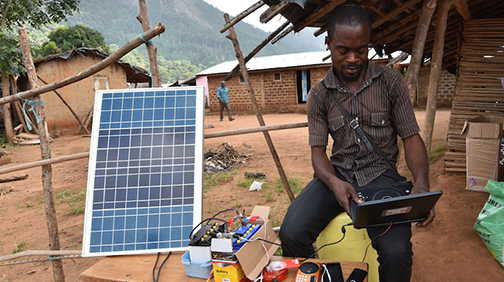
Grid Or Solar: Which Best Serves As Energy Solution For Rural Africa’s Needs?
South Asia has made tremendous progress in connecting rural areas to the electricity grid but the number of people in Africa without access has scarcely changed since 2010. More than half a billion people in Africa don’t have access to electricity, meaning the continent hosts 72% of the world’s non-electrified population. The UN Sustainable Development Goals have set a universal goal of ensuring access to affordable, reliable, sustainable, and modern energy for all by 2030. To achieve this, the continent will require a big electrification push.
But what kind of electricity makes sense in rural Africa to make the most of available budgets? Over the past decade or so, a range of new off-grid solar products has emerged.
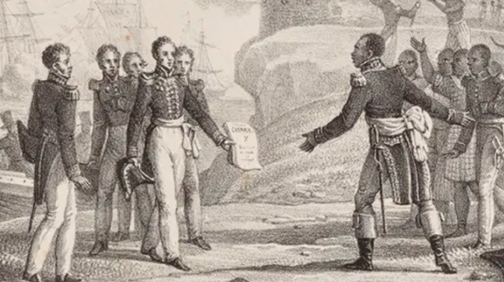
How France Extorted Haiti For The Greatest Heist In History
Haiti officially declared its independence from France in 1804. In October 1806, the country was split into two, with Alexandre Pétion ruling in the south and Henry Christophe ruling in the north. Despite the fact that both of Haiti’s rulers were veterans of the Haitian Revolution, the French had never quite given up on reconquering their former colony.
In 1814 King Louis XVIII, who had helped overthrow Napoléon earlier that year, sent three commissioners to Haiti to assess the willingness of the country’s rulers to surrender. Christophe, having made himself a king in 1811, remained obstinate in the face of France’s exposed plan to bring back slavery.

Africa And France: An Unfulfilled Dream Of Independence?
“Sixty years on, francophone countries in Africa still do not have true independence and freedom from France,” says Nathalie Yamb, adviser to Ivory Coast’s Freedom and Democracy Party (LIDER). Even the content of school textbooks is often still determined by France, she added.
But more importantly, the political system in many of the countries was introduced by France. “Shortly before independence, France decided to abolish the parliamentary system in some countries like Ivory Coast and introduce a presidential regime in which all territories and powers are in the hands of the head of state,” Yamb told DW.
